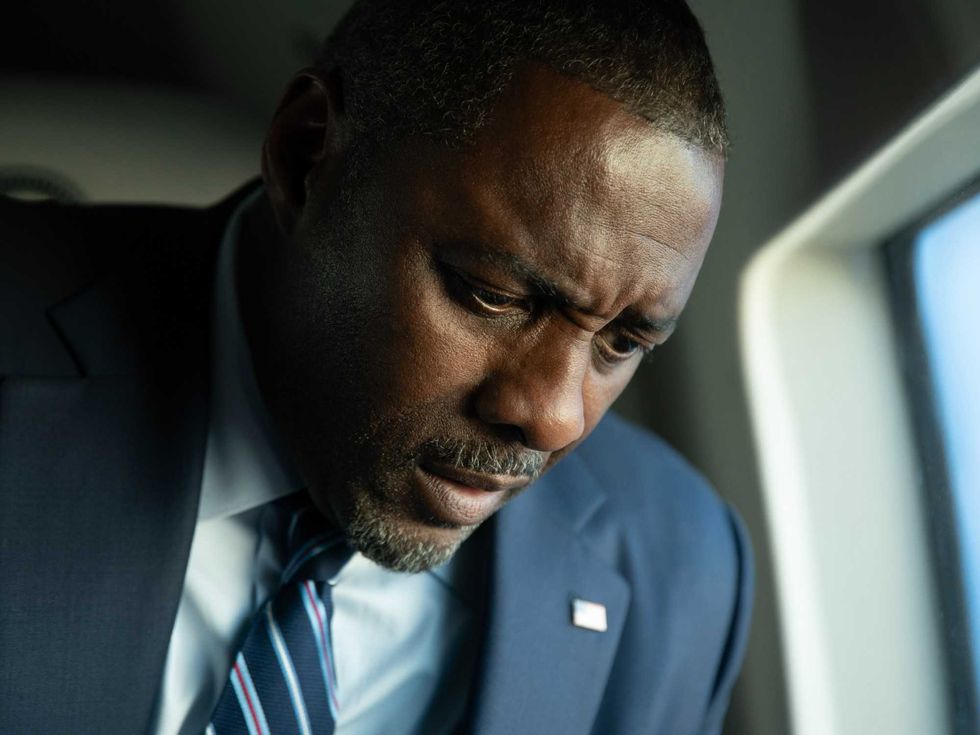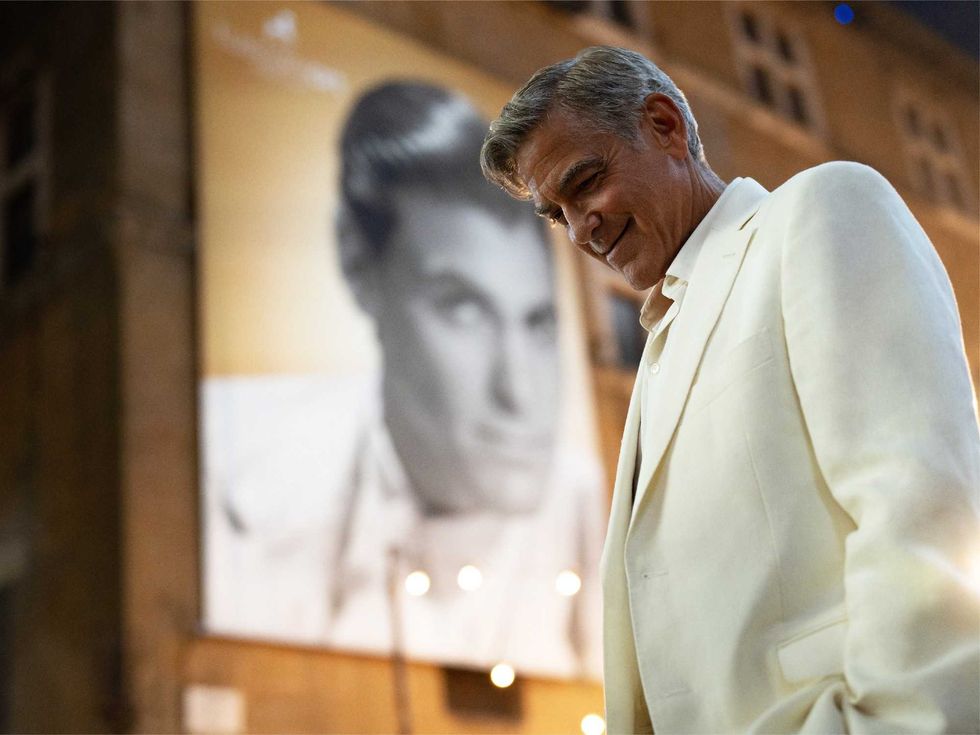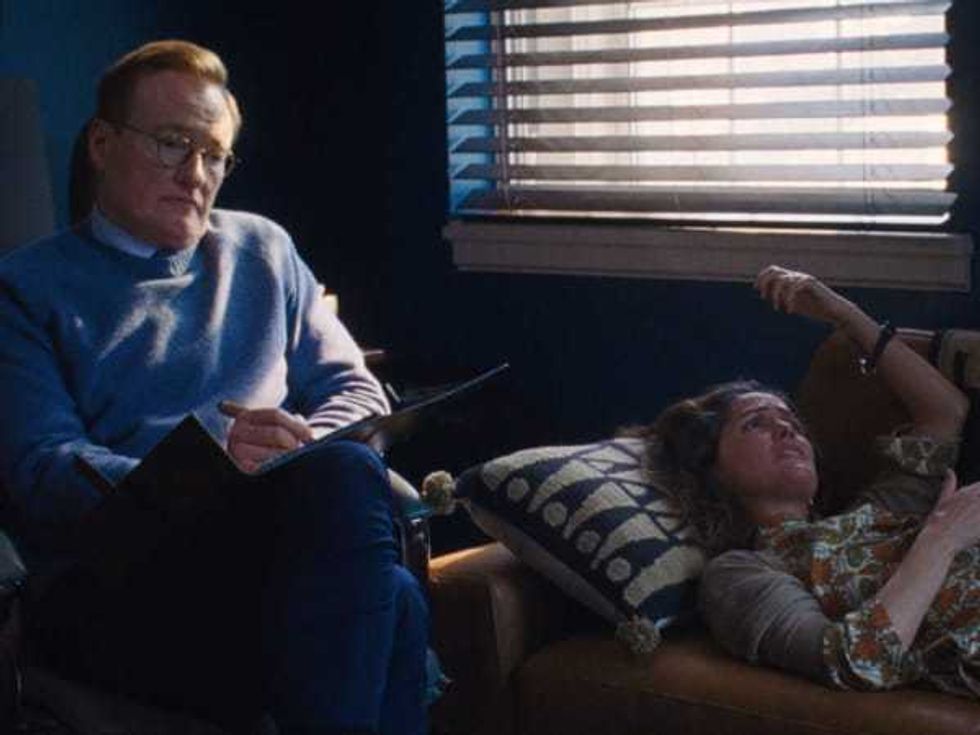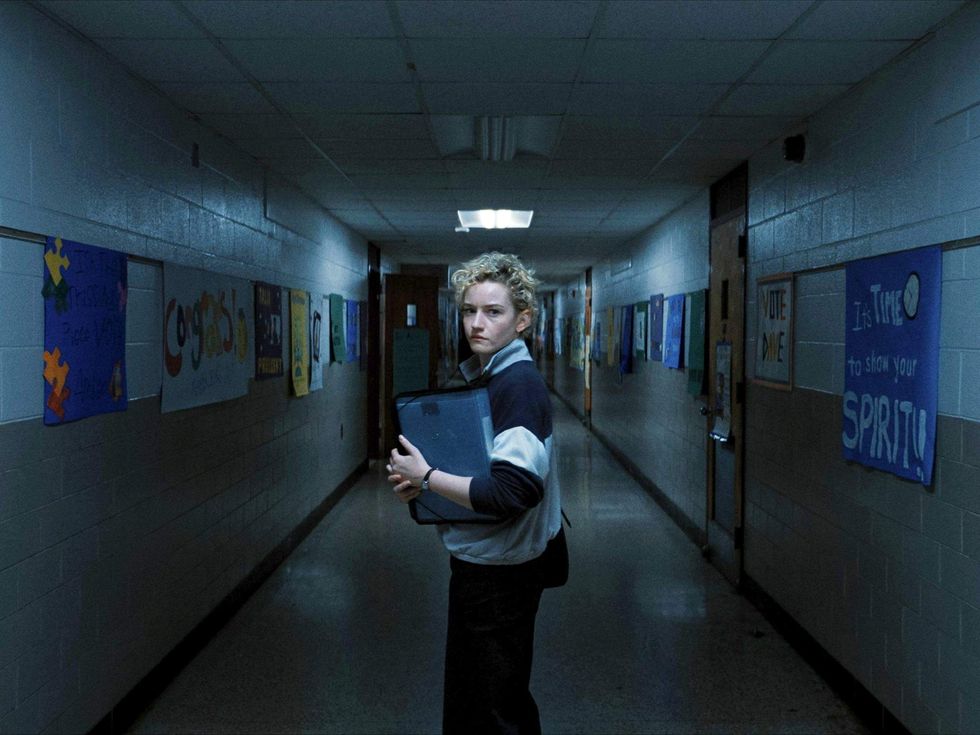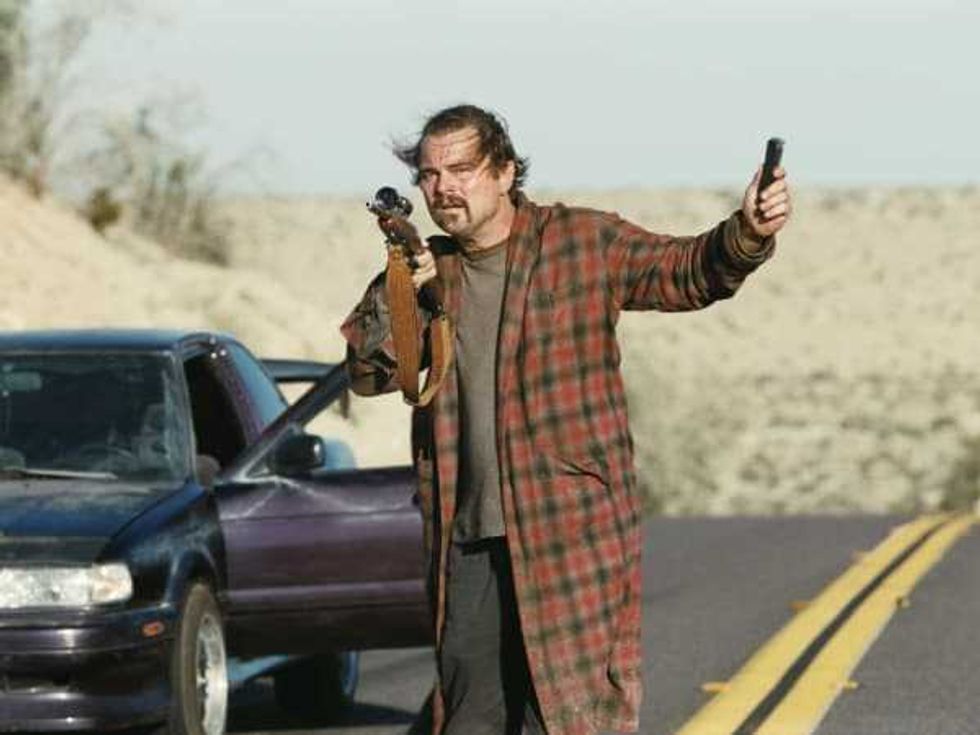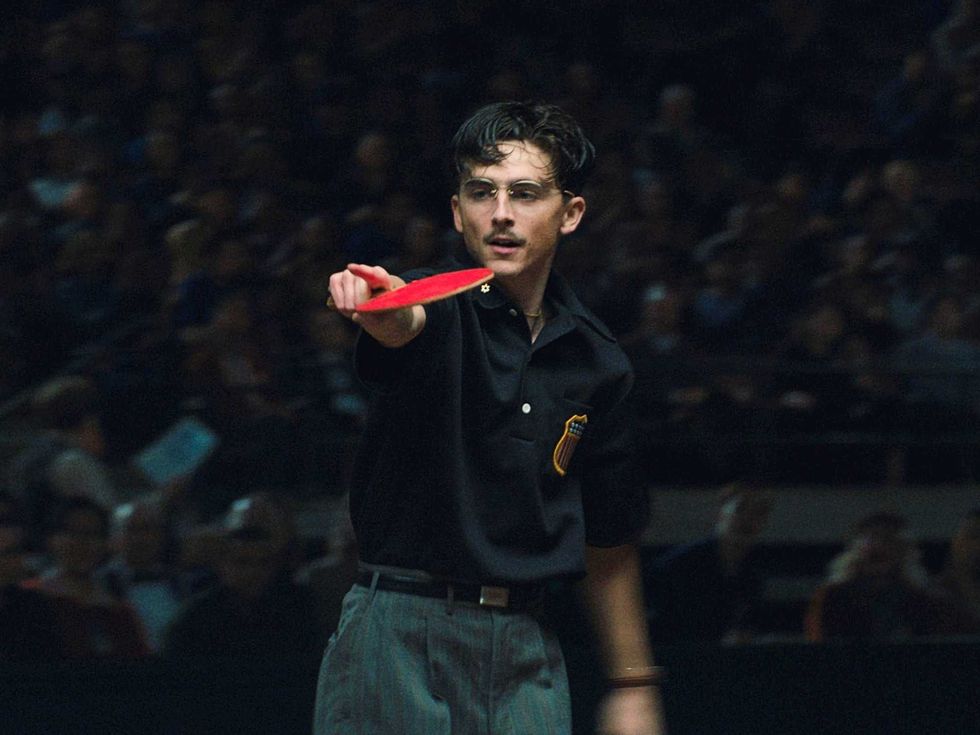No Retreat, No Surrender
The Ultimate Springsteen countdown begins today
For more than 35 years, Bruce Springsteen has set a standard of consistent excellence that few other rock and roll artists could ever hope to match. He has written so many great songs, as both a solo artist and with the E Street Band, that it would seem almost impossible to try and rank those classics one against another. And yet one fan was daring enough, or maybe foolhardy enough, to try. CultureMap presents "No Retreat, No Surrender," a worst-to-first countdown of every album cut in Springsteen history, plus a few choice outtakes, live classics, and soundtrack songs - that's 200 tunes ranked and defended. Check back each week as the countdown is gradually revealed, and prepare to hit the comments to defend your favorites.
Song 200: “Real Man”
Album: "Human Touch"
Adobe Flash Required for flash player.
With snoozer lyrics and a keyboard riff that seems ripped from the musical oeuvre of Dirk Diggler, “Real Man” is one Springsteen song that likely won’t get dragged out for any encores anytime soon. I wouldn’t categorize Bruce’s other rare musical missteps as bad songs; some are generic, some are misguided, and some just fall short of his own lofty standards. But, to paraphrase Ty Webb in Caddyshack, “Real Man” is not...good.
The pity is that Bruce brought back his old buddy David Sancious back for organ work on this "Human Touch" track, which is a little bit like bringing Tiger Woods in for your bowling league. None of the adventurous spirit that categorizes the pair’s work on Bruce’s first two albums is anywhere in the vicinity of this song.
That squawking riff is just awful, but it’s not like it’s ruining a classic. On the contrary, the basic construct is clunky and overdone, marred by Bruce yelping the vocals in an effort to bring some life to the proceedings. The story of a dude rendered insecure by pop-culture icons (and, by the way, wasn’t Rambo already pretty dated by that point?) is a bit hard to swallow coming from one of the biggest stars on the planet.
And what exactly does it mean to be “feelin’ like a real man”? For a guy who has explored the inner self of the American male better than anybody else, such banalities ring uncharacteristically hollow. Things go awry early and often with “Real Man.” It’s a clunker, Boss fans. You’ll see how much I love the guy as this list progresses. So suck this one up, and I promise it will only get better.
Song 199: “All Or Nothin’ At All”
Album: "Human Touch"
Adobe Flash Required for flash player.
We’re back at "Human Touch" again, and lest you think that I’m picking on this album, well, maybe I am. There is plenty of blame to go around here, so let’s start assigning it, shall we?
The easy target is “The Other Band,” so named because they replaced the E Street Band around that time. But it’s a bit of a stretch to go after them based on the studio recordings, because "Human Touch" was essentially recorded with a four-piece band including Springsteen and E Streeter Roy Bittan, along with session men Randy Jackson on bass and Jeff Porcaro on drums.
Yes, it’s that Randy Jackson, the Dawg, judge of talent show/train wreck American Idol. (I have this vague image of Jackson telling Bruce that his vocals are a little “pitchy,” and Bruce responding by rocketing a mike stand at him.) All that aside, the guy is a respected bassist. And they don’t get much more respected than Porcaro, who played with anybody and everybody on the rock scene after his stint with Toto before tragically passing away not long after the release of "Human Touch."
But the truth remains that the sound the four created is slick but generic, lacking any personality. Thus, if the song didn’t rise to the occasion, the results were less than memorable. And that’s where Bruce deserves some blame, because songs like “All Or Nothin’ At All” just don’t get off the ground.
What is meant to be swagger sounds more like bluster, both in the flat-lined music and the lyrics, in which Bruce comes off as more bossy than Boss with his in-your-face exhortations to a reticent girl. Blame whoever you want, but the truth is that this song is far closer to nothin’.
Song 198: “Mary’s Place”
Album: "The Rising"
Adobe Flash Required for flash player.
For a man who’s written so many roof-raising, crowd-pleasers that he could build a set list around them and still have more to spare, I’m a little mystified by Bruce’s logic when he wrote “Mary’s Place,” which was clearly intended to be a concert showcase. Whereas all of the other songs came by their live popularity organically, this song feels like it was forced onto "The Rising" to give people a heads-up that it was coming during a show.
That being the case, it never had a chance as a studio recording. It feels like the “party” that the song wants to start isn’t particularly raucous. Maybe some cheese and crackers and Parcheesi, but nothing that’s going to get anybody in any trouble, like all good parties must.
All of Roy Bittan’s and Clarence Clemons’ efforts to get the song airborne, while admirable, just don’t do the trick, and the brief horn breakdown only serves to remind us of other past glories. If someone created a computer program to approximate the sound of the E Street Band, it might come out sounding like “Mary’s Place.” The details may be familiar, but the soul is missing.
Worse yet, it’s a long song, checking in at over 6 minutes. That’s a whole lot of “let it rains,” probably a score too many for my taste. The song might have made sense as an occasional concert lark, but it’s a black hole on "The Rising."
Song 197: “The Long Goodbye”
Album: "Human Touch"
Adobe Flash Required for flash player.
The easy criticism of "Human Touch" and "Lucky Town" is that they failed because Bruce couldn’t write good material while he was happy in his personal life. With a stable marriage and children, how could he produce great music without the inner turmoil that fueled some of his best works?
That’s first-class malarkey on several levels. First of all, I contend that Bruce has written upbeat rock songs better than almost any other artist save The Beatles, and this list will reflect that eventually, but no spoilers yet. Second, there is plenty of more pessimistic material on these albums, proving that Bruce could still clearly step outside his own happiness when need be.
But the sound he created on "Lucky Town" too often leveled out all emotions, turning the songs into a colorless buzz. Case in point: “The Long Goodbye,” in which Bruce paints a picture of a man whose hopes and dreams have evaporated, but yet his life stubbornly goes on. There is some black humor in the lyrics: “Well I went to leave twenty years ago/Since then I guess I been packin’ kinda slow.” But those touches are drowned out by the murky electric guitars and overall tunelessness.
The angst was there, but “The Long Goodbye” makes the task of seeking it out far too laborious.
Song 196: “Wild Billy’s Circus Story”
Album: "The Wild, the Innocent, and the E Street Shuffle"
Adobe Flash Required for flash player.
This is a tough one, because this song gained sentimental value for me after Bruce used the title character again in “The Last Carnival,” making the tribute to Danny Federici a sequel of sorts. That was undoubtedly a nifty touch, drawing a parallel between the circus life and life on the road.
But that comparison is hard to find on “Wild Billy’s Circus Story,” in which the celebration of circus life is far too literal to be taken as anything but just that. And the wordiness that dogged Bruce a bit in his debut album made a return appearance on this track off "The Wild, the Innocent, and the E Street Shuffle." There’s a fine line between impressive and show-offy, and Springsteen is on the wrong side of it here.
While you can sense his admiration of this vagabond way of life in the way he concentrates on the details of the show and its motley crew of players, it also keeps the story a bit earthbound, draining the song of the sense of romance and wonder that it wants to convey. When Billy finally chooses to come aboard at song’s end, you have to wonder why.
Points for Garry Tallent and his fine tuba work (who knew?), and for Bruce working in rhymes with “neck twist” and “human cannonball.” It’s a bit of a wackadoo song and you can’t really get too worked up over it, but “Wild Billy” is far from The Greatest Show On Earth.
Song 195: “Gloria's Eyes”
Album: "Human Touch"
Adobe Flash Required for flash player.
The tale of a ne’er-do-well damned to a life of scorn from his rightfully distrusting mate, “Gloria’s Eyes” is sort of like “Brilliant Disguise” turned upside down. This time around it’s the narrator who has things he needs to hide, but the girl that he’s wronged knows better, even if the only indication is the subtle change in her peepers.
Although it’s by no means the best set of Springsteen lyrics, they might have still been effective if they could have escaped the monotone groove and repetitive guitar lick. Bruce gives it his all vocally, but the strain is noticeable. He’s screaming here, not singing, and it all sounds a bit overwrought.
His guitar solo has some sting to it, so that’s a bit of a saving grace. But it’s another case of a "Human Touch" song weighed down by a mushy sound and a lack of inspiration. It’s forgettable even while you’re listening to it, and that’s a true rarity among the Springsteen oeuvre.
Song 194: “All the Way Home”
Album: "Devils & Dust"
Adobe Flash Required for flash player.
Would you believe that there is sitar, tambora, and something called the electric sarangi to be found on this "Devils & Dust" track? But just when you think Bruce might be dropping a raga on you, you listen to “All The Way Home” and get what sounds suspiciously like rock and roll, albeit the punchless kind.
Things start promisingly enough with a thundercrack beat provided by drummer Steve Jordan. But all of those exotic instruments must have canceled each other out, because nothing besides a low drone is distinguishable next to the beat and the main riff, which quickly wears out its welcome.
This track was originally intended for Springsteen’s buddy Southside Johnny, and maybe the barroom setting was a giveaway. The lyrics portray a last-call woo session between a pair of characters who have seen some better days and far more worse ones. Alas, Bruce never adds a tune to those lyrics and he slurs the vocals into one long mess.
Lack of melody is the criticism usually hung on Bruce’s non-band albums, and here it’s all too on-point. The most exciting things about “All The Way Home” are the instrumental credits.
Song 193: “Long Time Comin’”
Album: "Devils & Dust"
Adobe Flash Required for flash player.
Somewhere buried beneath some heavy-handed rock moves lies a pretty good country and western song here, even if it has darker edges than most of what comes out of Nashville. (After all, it’s hard to imagine George Strait dropping F-bombs and stripping naked for a ritual burying of his old self, as Bruce does here.)
The hints of steel guitar and fiddle are indications of what this song might have been. “Long Time Comin’” was one of several musty tracks that the Boss exhumed for "Devils & Dust," and maybe Bruce’s legendary tinkering process sent this song through one too many incarnations over the years from the time it was first written circa "The Ghost of Tom Joad" era. The final version unfortunately doesn’t do justice to the prickly and honest lyrics it holds.
Essentially told from the perspective of a man on a camping trip with his family, the song takes a fresh approach to the intertwined themes of family redemption that Bruce started to focus on heavily in the early 90’s. A bit of Springsteen’s old familiar father-issues rear their head (“When I was a kid he was just somebody/Somebody I’d see around”), but this character also clearly sees his own faults even while vowing to change, inspired by the children in the sleeping bag beside him and the one growing inside his pregnant wife. The final image of Bruce feeling the baby kicking is a poignant one.
Such poignancy would have been better served by a more tender reading. But the mid-tempo rattle that accompanies it doesn’t distinguish itself in the least, and it mitigates the impact of the triumphant chorus as well. As such, “Long Time Comin’” frustrates with its unfulfilled potential.
Song 192: “Silver Palomino”
Album: "Devils & Dust"
Adobe Flash Required for flash player.
There is a bit of an academic air to some of the more detailed tracks on "Devils & Dust" that renders them more admirable than enjoyable. The liner notes to this song include definitions for some of the Spanish words that Bruce uses, along with a brief intro which essentially telegraphs the theme of the song: “A mother dies, leaving her young son to come to terms with the loss.”
This is all well and good, but separated from the liner notes and lyric sheet, you’d be hard-pressed to tell what the hell “Silver Palomino” is about. That’s because Bruce turns in one of his most constipated vocal performances. Whatever melody the song might contain is lost in the singer’s grunts and groans, as are any lyrical nuances that he might wish to convey.
So what you’re left with is a piece of work that reads far better than it sounds. There might be a worthwhile short story in those undeniably heartfelt lyrics, but there isn’t much of a song.
Song 191: “Dry Lightning”
Album: "The Ghost of Tom Joad"
Adobe Flash Required for flash player.
Gentle to the point of being sleepy, “Dry Lightning” is one of the few songs on "The Ghost of Tom Joad" that isn’t really setting-specific. The tale of a man who holds on to the memories of his lost love because they are now all he truly has could be taking place anywhere on the planet, although Bruce throws in some details about horses and plains that makes the song fit in with the Western milieu of the rest of the album.
There are some nice lines scattered throughout, and the titular heavenly phenomena is an appropriate symbol of this character’s overall ineffectualness. But there is a rambling quality to the lyrics that keep them from hitting home like they otherwise might.
The song’s melody owes a pretty strong debt to Tom Waits’ “Jersey Girl,” which Bruce famously covered on his live box set. Danny Federici bathes the song in keyboards while Bruce flicks at his acoustic for some spice now and then. Overall the arrangement is a tad on the hazy side.
There is nothing too objectionable about this track, but it doesn’t leave much of an impact either. Maybe, considering the protagonist and his lonely travails, that was the point.

